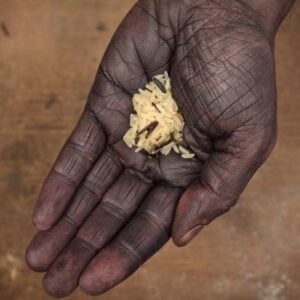The United Nations World Food Programme (WFP), in partnership with various organizations, has successfully concluded a nine-month emergency response aligned with the Government of Namibia’s Emergency Drought Response Plan. This intervention targeted the impacts of the El Niño-induced drought and was supported by a US$3 million contribution from the UN Central Emergency Response Fund (UN-CERF).
From October 2024 to June 2025, WFP provided life-saving food and nutrition assistance to over 63,000 vulnerable individuals in the Kavango East, Kavango West, and Omaheke regions. The response not only addressed immediate food insecurity but also integrated essential services delivered in collaboration with other UN agencies.
At food distribution sites, UNICEF offered outreach and health screenings to more than 83,500 individuals, along with referrals for children suffering from malnutrition. UNFPA reached over 22,400 people with Sexual and Reproductive Health (SRH) and Gender-Based Violence (GBV) services through mobile outreach across schools and communities. Additionally, a community feedback mechanism was established to allow beneficiaries to voice their concerns and contribute to refining the response approach.
The CERF funding enabled over 41,000 individuals (around 7,000 households) to receive three rounds of food vouchers, which they redeemed at 25 local retail outlets. This not only met basic food needs with items such as maize meal, canned fish, and cooking oil, but also stimulated local economic activity by supporting small businesses, generating employment, and reinforcing supply chains. Meanwhile, 22,000 children were served hot, nutritious meals at 155 soup kitchens strategically located in accessible areas.
The WFP reaffirmed its commitment to continued collaboration with the Namibian government, UN agencies, and other partners. The focus will remain on strengthening food systems, building community resilience, and enhancing preparedness to better respond to future climate-related shocks.




